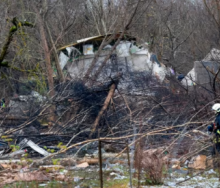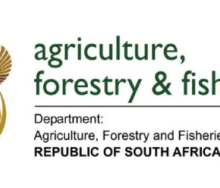South Africa’s only processing plant for raw tobacco has warned that illicit trade could trigger its demise if multinational cigarette manufacturer British American Tobacco (BAT) stops sourcing its product.
But BAT South Africa (Batsa) may be forced to pull the plug on Limpopo Tobacco Processors (LTP) because illegal cigarette sales have so eroded its market share that buying local leaf may soon not be viable.
Latest figures used by Batsa in a letter sent to LTP tell a startling story of trying to keep a taxable industry afloat in the face of illegal, tax-free smoking.
In 2015 Batsa sold 15.2 billion cigarettes compared to last year’s estimated 11.5 billion – and the drop is trending down steeply. Should sales fall below 10 billion, Batsa said it would have to evoke a “break” clause with LTP despite having a five-year roll-over contract with the Rustenburg consortium.
In the meantime, ahead of the 20 February budget speech and the general expectation of more “sin tax” increases, Batsa has warned that more excise duties on cigarettes could force its sales down to 9.5 billion.
Little wonder that LTP, which sources its leaf from 100 established farmers and 150 emerging farmers, is doing whatever it can to avoid what seems like a foregone conclusion – closure.
“But it’s not Batsa’s fault. They’re being very fair and have to protect their bottom line. Our biggest problem is the government, South African Revenue Service (Sars), and law enforcement organisations,” said LTP managing director Christo van Staden.
“Illegal cigarette sales are completely out of control but nothing gets done about it.”
Van Staden said the Tobacco Industry of South Africa (Tisa) had for years been trying to get government to take decisive action against illicit cigarette sales.
“And it’s not just sales. We know of at least one company, Gold Leaf Tobacco Corporation, manufacturers of brands such as RG, that are illegally sold on the streets.
“We have offered to take customs officials to their premises as we know where they are but we never hear from Sars or the police. Because it’s been going on for years the formal industry is beginning to lose faith in government’s ability to act against illegal sales.”
Ramping up suspicion of high-level conspiracy against the formal tobacco trade, Van Staden indicated that he did not necessarily agree with the argument that a skills exodus at Sars under its former state capture implicated commissioner, Tom Moyane, had led to a rise in inefficiency at the revenue collector.
“We’re getting the impression that something is happening in the corridors of power that’s preventing Sars and police from taking decisive action.”
In a difficult economy rife with unemployment, inflation and price increases, consumers can also not be blamed for buying cigarettes that cost as much as R20-R30 less than other brands. Sales data last year officially confirmed that Peter Stuyvesant, one of the world’s most popular brands, had been surpassed in South Africa by RG.
With more than 100 000 informal outlets countrywide and without the current excise tax of around R17.85 per packet that consumers have to pay on the formal market, official sales have all but collapsed in some provinces, Van Staden said.
“We have sourced some of the leaf used by illegal manufacturers and it’s not local. It comes from countries like Zimbabwe and it is crippling our country’s formal tobacco sector.” Research consultancy Ipsos has also indicated that illegal sales are gaining traction hand over fist. Its market share last year spiked from 33% to 42%.
These days LTP had a good year if it processed 11 million of the 20 million tonnes of tobacco consumed annually, Van Staden said. And the bigger picture – a projected loss of R8 billion in taxable earnings, up from R7 billion last year.
Tisa chairperson Francois van der Merwe has also urged that drastic action be taken against illicit sales, the ill-gotten proceeds of which he said funded other criminal ills like sex-trade related human trafficking.
Much closer to the problem at hand, economist Azar Jammine has implored national Treasury not to impose any more taxes on the formal tobacco industry in a bid to stem the bleeding caused by excise duties.
Should Batsa withdraw from LTP and the consortium is forced to close down, some 10 000 labourers with an estimated 35 000 dependants could lose their jobs.
“We’re living in desperate times,” Van Staden said.
FTW was awaiting comment from Sars and Gold Leaf Tobacco Corporation when this issue went to press.













